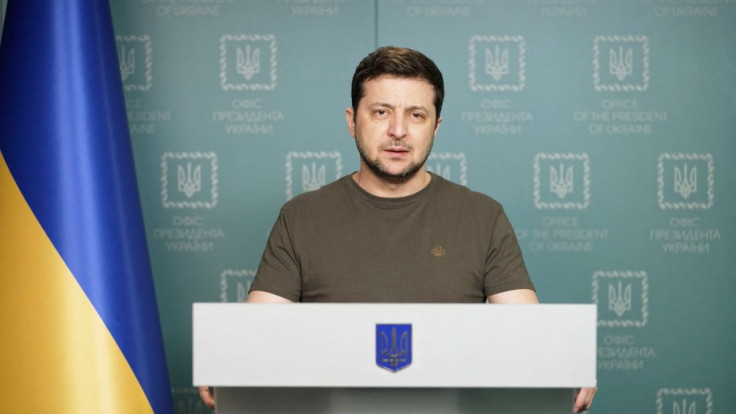Ukraine President Zelenskiy To Seek More Help In Speech To U.S. Congress

Ukrainian President Volodymyr Zelenskiy on Wednesday is set to make an urgent appeal to the U.S. Congress for more help in fending off a Russian invasion that has brought death and destruction and sent a wave of refugees fleeing his country.
Zelenskiy's speech will be broadcast live, unlike a private conversation he held on March 5 with U.S. lawmakers during which he made a plea for aircraft to help Ukraine fend off aerial attacks by Russia.
Zelenskiy's virtual address to members of the House of Representatives and Senate, scheduled for 9 a.m. EDT (1300 GMT), comes a day after he made a plea to Canada's parliament for more Western sanctions on Russia and the imposition of a no-fly zone over Ukraine.
"We are not asking for much. We are asking for justice, for real support," Zelenskiy told Canadian lawmakers on Tuesday.
A no-fly zone is a step U.S. President Joe Biden and NATO allies have resisted out of a fear of escalating the war that began with Russia's Feb. 24 invasion. Biden on Tuesday signed into law $13.6 billion in emergency aid to Ukraine to help it obtain more weaponry and for humanitarian assistance.
Biden was expected to announce an additional $800 million in security assistance to Ukraine later on Wednesday in remarks on U.S. aid to the country, a White House official said.
Zelenskiy has sought in recent weeks to shore up support for his country in various speeches to foreign audiences, also including the European Parliament and the British Parliament.
Support for Ukraine is a rare instance in which Republicans and Democrats have aligned in a sharply divided Congress, with some lawmakers in both parties urging Biden to go further in helping Ukraine. There is some bipartisan support in Congress for rushing combat aircraft to Ukraine.
On Tuesday, the U.S. Senate unanimously passed a resolution condemning Russian President Vladimir Putin as a war criminal.
The United Nations estimates that around 3 million people have fled Ukraine, mostly women and children, and are seeking safety in neighboring countries, mainly Poland.
Biden has announced a ban on Russian oil and other energy imports and has called for a suspension of Russia's trading status that affords its exported products lower tariffs in the international arena. The House is attempting to pass legislation responding to Biden's request this week.
HISTORIC VISITS
It is rare for foreign leaders to address the U.S. Congress during wartime. A famous example came in 1941, when British Prime Minister Winston Churchill spoke to Congress just weeks after Japan's attack on Pearl Harbor that drew the United States into World War Two. Churchill warned that "many disappointments and unpleasant surprises await us."
In 2015, Israeli Prime Minister Benjamin Netanyahu delivered a speech to Congress opposing an international deal aimed at discouraging Iran from developing nuclear weapons as the matter was being debated in Washington.
The first foreign leader to address a joint meeting of Congress was King Kalakaua of Hawaii in 1874, before Hawaii became a state.
Following the breakup of the Soviet Union, Russian President Boris Yeltsin in 1992 addressed Congress. Yeltsin's upbeat speech proclaimed: "We have left behind the period when America and Russia looked at each other through gun sights, ready to pull the trigger at any time."
But the sanctions leveled by the United States and its allies against Russia following the invasion and moves to shore up Ukraine's military capability have brought back memories of the decades-long Cold War between the United States and Soviet Union to which Yeltsin had referred.
Russia calls its actions in Ukraine a "special operation."
© Copyright Thomson Reuters {{Year}}. All rights reserved.





















